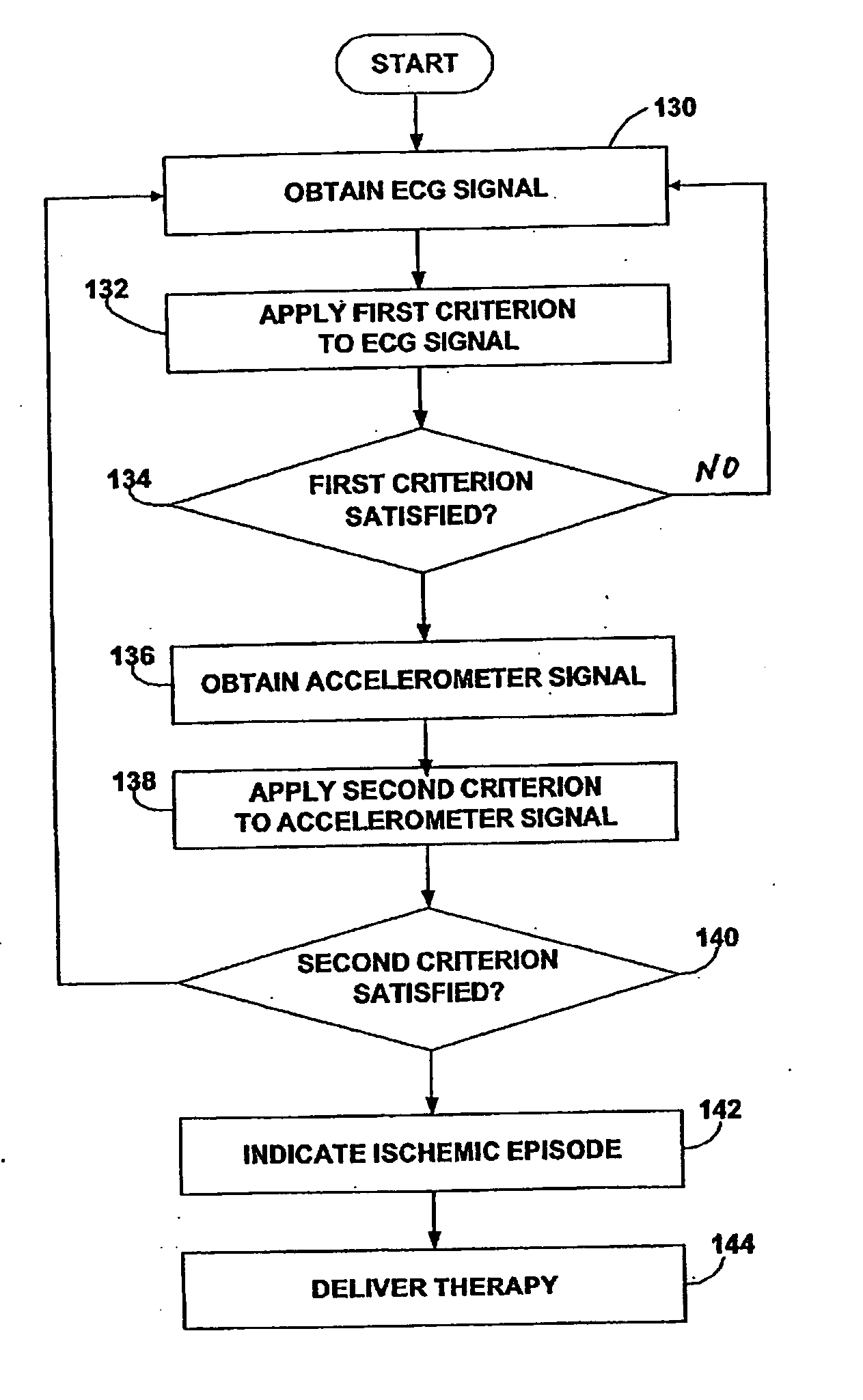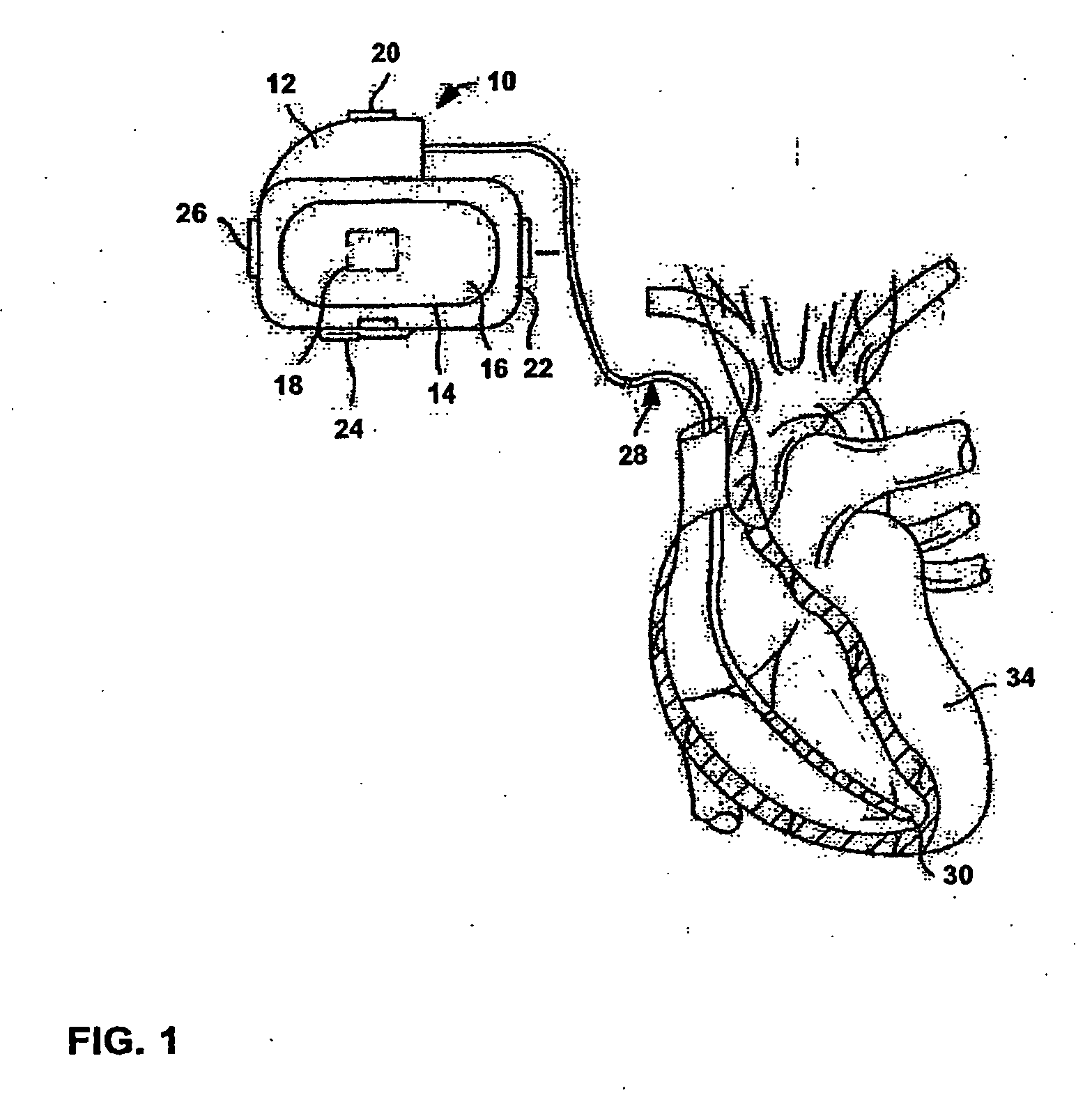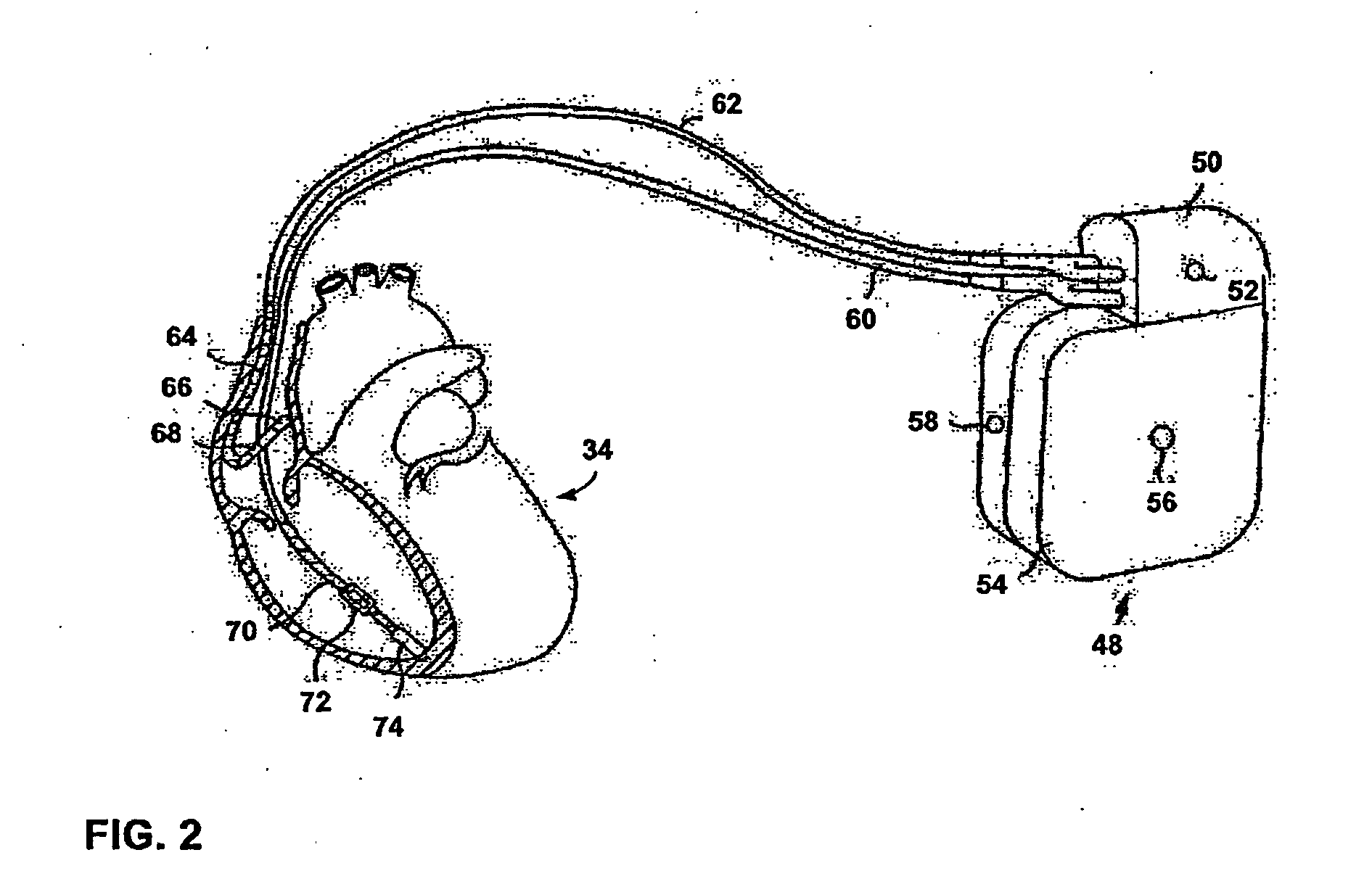Ischemia detection
a technology for detecting ischemia and myocardial infarction, applied in the field of cardiac health, can solve the problems of unreliable use of the st segment as an indicator of ischemia, myocardial infarction, and myocardial infarction, so as to avoid false indication of ischemia, increase the specificity of ischemia detection, and reliable indication of an ischemic event
- Summary
- Abstract
- Description
- Claims
- Application Information
AI Technical Summary
Benefits of technology
Problems solved by technology
Method used
Image
Examples
Embodiment Construction
[0035]FIG. 1 is a diagram illustrating an implantable medical device (IMD) 10 in association with a heart 34. IMD 10 may be configured for both monitoring and therapy of heart 34. For example, IMD 10 may include a pulse generator to deliver electrical stimulation to heart 34 for use in cardioversion or defibrillation. In accordance with the invention, IMD 10 obtains a signal indicative of dynamic mechanical activity of heart 34, and an electrical signal indicative of electrical activity of the heart.
[0036] Using both signals, i.e., the electrical signal and the signal indicative of dynamic mechanical activity, IMD 10 detects the existence of myocardial ischemia within heart 34. When both signals reveal ischemic conditions, IMD 10 indicates an ischemic episode. The signal indicative of dynamic mechanical activity corroborates the electrical signal.
[0037] If ischemia is detected, IMD 10 can be configured to deliver appropriate therapy to alleviate its effects. The therapy may includ...
PUM
 Login to View More
Login to View More Abstract
Description
Claims
Application Information
 Login to View More
Login to View More - R&D
- Intellectual Property
- Life Sciences
- Materials
- Tech Scout
- Unparalleled Data Quality
- Higher Quality Content
- 60% Fewer Hallucinations
Browse by: Latest US Patents, China's latest patents, Technical Efficacy Thesaurus, Application Domain, Technology Topic, Popular Technical Reports.
© 2025 PatSnap. All rights reserved.Legal|Privacy policy|Modern Slavery Act Transparency Statement|Sitemap|About US| Contact US: help@patsnap.com



